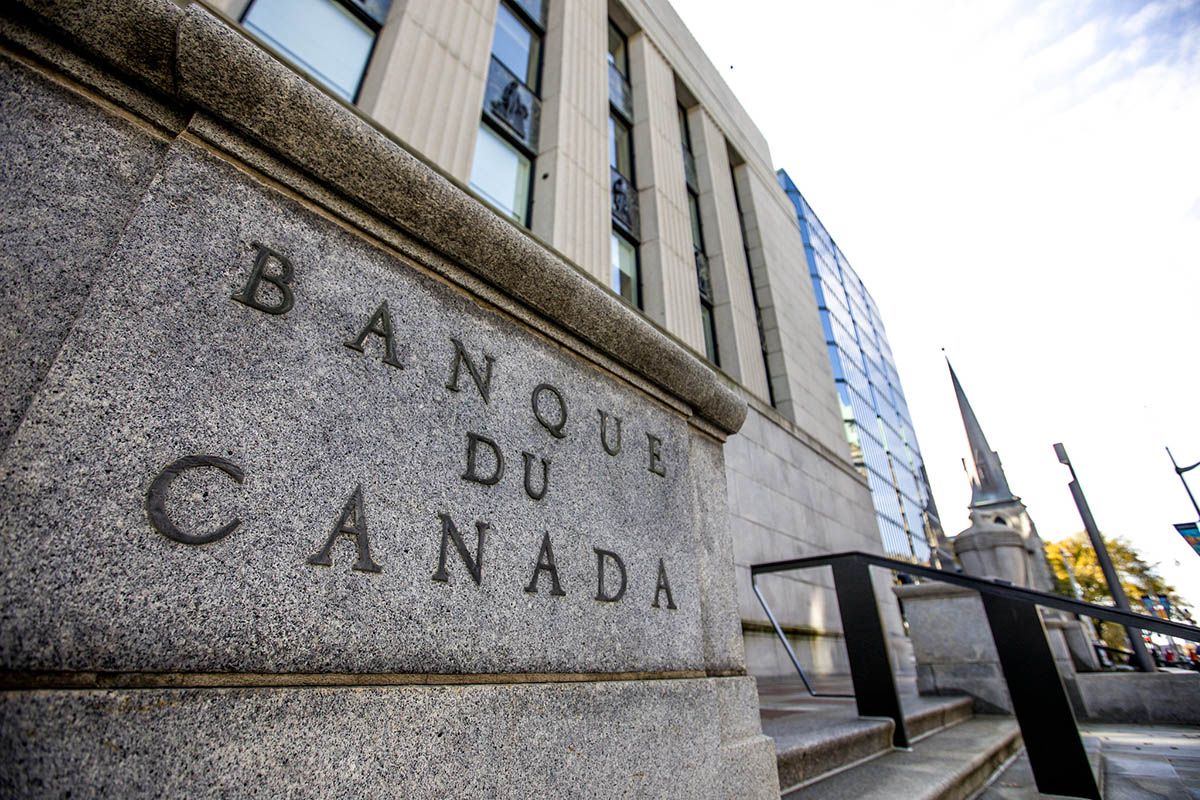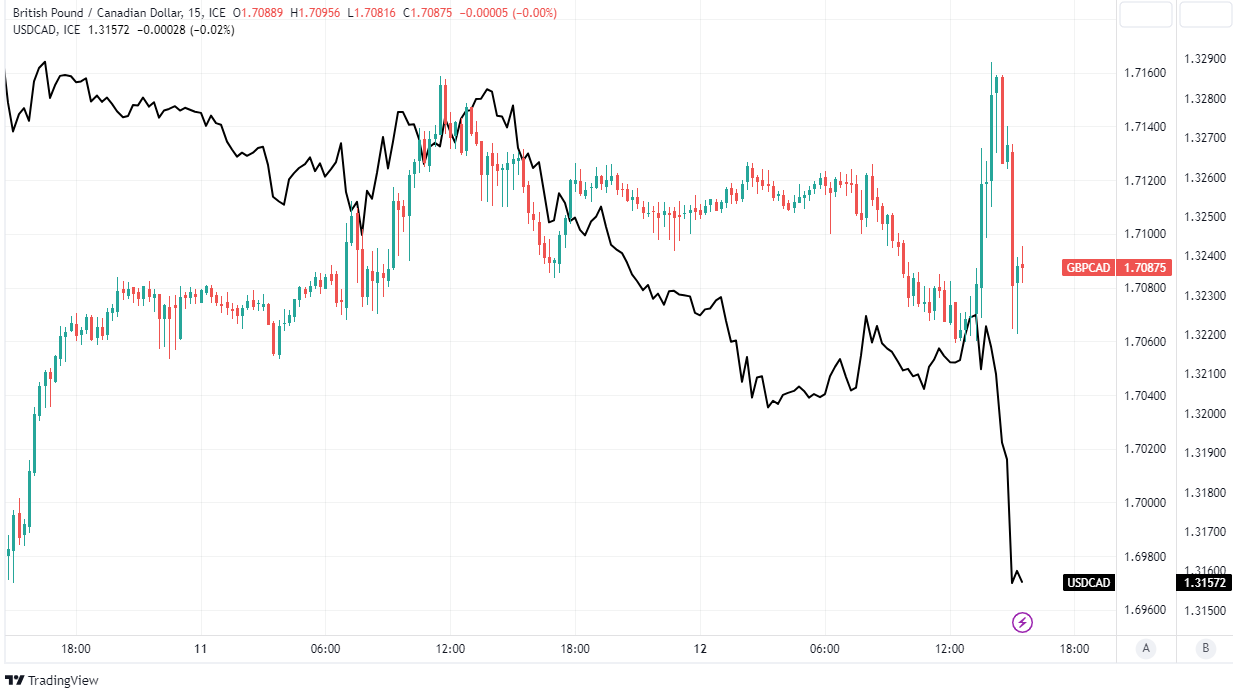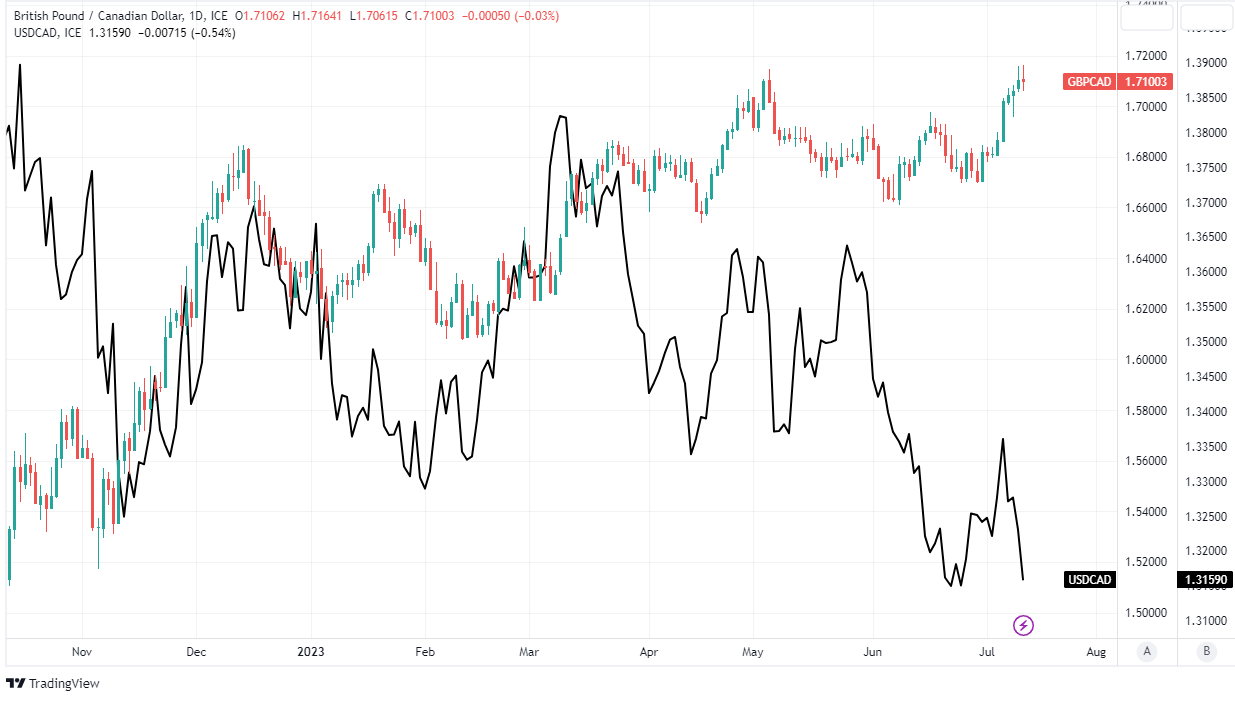Canadian Dollar Stalls GBP/CAD after BoC Raises Cash Rate
"While CPI inflation has come down largely as expected so far this year, the downward momentum has come more from lower energy prices, and less from easing underlying inflation" - Bank of Canada.

Image © Bank of Canada
The Canadian Dollar rose to change hands at new intraday highs while weighing on GBP/CAD in midweek trade after the Bank of Canada (BoC) cited signs of "more persistent excess demand in the economy" for raising the cash rate to five percent and keeping its options open for the months ahead.
Canada's economy has outperformed Governing Council expectations in recent months with consumption growing faster than imagined at the time of the April forecast round while inflation pressures have been slower to recede in the domestic services sector than had been anticipated.
"While the Bank expects consumer spending to slow in response to the cumulative increase in interest rates, recent retail trade and other data suggest more persistent excess demand in the economy," the Governing Council said in a statement.
"We will be evaluating whether the evolution of excess demand, inflation expectations, wage growth and corporate pricing behaviour are consistent with achieving the 2% inflation target. The Bank remains resolute in its commitment to restoring price stability for Canadians," it concluded.
The BoC raised the cash rate from 4.75% to 5% on Wednesday in what was a modest upside surprise relative to the levels prevailing in the overnight index swap market, and one that erases the yield premium Sterling had enjoyed since the Bank of England (BoE) raised Bank Rate to 5% last month.
Above: Pound to Canadian Dollar rate shown at 15-minute intervals alongside USD/CAD.
Rates asked and offered in the swap market had implied around a two-thirds probability of an increase this week and an even higher risk of one further uplift by year-end.
"A continued hawkish tone within today's statement suggests that risks are skewed towards another hike after the summer," says Andrew Grantham, an economist at CIBC Capital Markets, in a note following the decision.
"However, after setting their forecasts for GDP growth quite low in prior MPR's, the bar set in today's updated forecast doesn't seem quite as low," he adds.
Grantham says Wednesday's new forecasts are more likely to be underperformed than they are outperformed and expects this kind of development would see the cash rate left unchanged from here onward, leaving much to be determined by the data emerging in the weeks and months ahead.
Wednesday's increase was the second since January's "conditional pause" of the monetary tightening cycle was interrupted in June when the BoC raised the cash rate from 4.5% to 4.75% after a flurry of economic figures led the bank to worry about inflation persisting at too high levels.
Above: Pound to Canadian Dollar rate shown at daily intervals alongside USD/CAD.
"In light of the accumulation of evidence that excess demand and elevated core inflation are both proving more persistent, and taking into account its revised outlook for economic activity and inflation, Governing Council decided to increase the policy interest rate to 5%," the BoC said on Wednesday.
Statistics Canada said just last Friday that employment rebounded from an earlier slump in June while in the prior week, it announced a pick-up in retail sales during April that helped the economy make a strong start to the second quarter.
But most importantly of all for the BoC, inflation has not yet fallen far enough for Governing Council members to be confident of it returning to the 2% target sufficiently soo, though it has made more progress toward its inflation target than many others including the Bank of England.
"While CPI inflation has come down largely as expected so far this year, the downward momentum has come more from lower energy prices, and less from easing underlying inflation," the BoC said on Wednesday.
"With the large price increases of last year out of the annual data, there will be less near-term downward momentum in CPI inflation. Moreover, with three-month rates of core inflation running around 3½-4% since last September, underlying price pressures appear to be more persistent than anticipated," it added.


